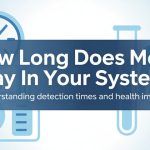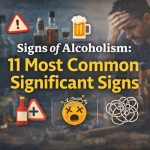People with Narcissistic Personality Disorder face difficulties in recognizing themselves and maintaining proper social relationships with others. Narcissistic Personality Disorder presents as a serious psychological disorder that makes people stand out as arrogant and selfish to many observers although this condition affects their relationships and professional performance along with their emotional health. Knowledge about the nature of NPD together with its signs and origins and treatment strategies provides the essential starting point toward rehabilitation.
Help exists for any individual experiencing narcissistic personality disorder along with their relatives. Through our evidence-based therapy, we provide treatment at Palm Coast Treatment Solutions that focuses on your unique requirements. Call us today at (386) 284-4151.
What is Narcissistic Personality Disorder?
The mental health disorder Narcissistic Personality Disorder makes patients experience elevated self-focus along with an extreme seeking of admiration together with impaired ability to understand others. The behavioral patterns among NPD patients involve arrogant conduct together with difficulties establishing interpersonal relations and showing self-involved and manipulative tendencies.
Individuals who have narcissistic personality disorder show signs of weak self-esteem as well as fear what others think and do not accept criticism. The core understanding of this mental illness develops from its dichotomy between displayed superiority and concealed feelings of weakness.
A person with NPD meets the criteria outlined in the Diagnostic and Statistical Manual of Mental Disorders (DSM-5) which classifies NPD as one disorder among Cluster B personality disorders that also include antisocial and borderline and histrionic disorders. The disorder impacts about 1% of people, yet numerous specialists think the actual occurrence rate is higher since experts often fail to diagnose it correctly.
Narcissistic Personality Disorder Symptoms
The identification of narcissistic personality disorder symptoms proves difficult because people who have NPD usually refuse to acknowledge their behavioral issues. Narcissistic personality disorder exhibits several typical symptoms which include:
Core Symptoms:
Someone who exhibits Grandiosity displays massive self-importance together with unrealistically exaggerated achievements.
- A person with this condition seeks endless compliments beyond what is necessary.
- A person with this personality disorder shows either limited capability to understand feelings in others or refuses to care about their emotional experiences.
- Sense of entitlement: Expecting special treatment or automatic compliance.
- An individual will utilize other people as tools to reach their targets.
- Envy represents sensations of envy towards other people as well as inner beliefs about others feeling envious toward you.
Arrogant or haughty behavior: Acting superior, boastful, or dismissive.
Emotional and Behavioral Symptoms:
- The sense of self-esteem in this condition gets offended rapidly through any sort of critique.
- Anger and rage episodes occur when someone issues a challenge to an individual with these characteristics.
- Difficulty maintaining close relationships.
- A person experiencing narcissistic personality disorder continuously imagines achieving success through power as well as attaining beautiful love.
It’s important to note that not everyone who displays narcissistic traits has NPD. A formal diagnosis should be made by a licensed mental health professional after a thorough evaluation.

100% Confidential Support is Available 24/7
No matter what you’re going through, you’re not alone. Our dedicated team is here to provide a safe, judgment-free space where you can talk openly and honestly. Whether you need emotional support, resources, or just someone to listen.
We’re here for you—completely confidential and always respectful of your privacy. Call us today!
Causes of Narcissistic Personality Disorder
People generally understand that narcissistic personality disorder develops from a combination of genetic factors, environmental influences and psychological elements, although its specific origins remain unclear. These elements represent the major factors which lead to narcissistic personality disorder.
1. Genetics
Studies confirm that the traits associated with narcissism have genetic roots that can be passed from one generation to another. Those with personality disorders or mental health issues among their relatives face increased probabilities of developing NPD.
2. Early Experiences
The appearance of the following early age characteristics might help form narcissistic personality disorder:
- Excessive pampering or excessive criticism from parents.
- Lack of emotional validation or warmth.
- Overemphasis on achievement or appearance.
3. Cultural and Social Influences
Those who live in areas where status, power, and outward appearance possess high value tend to develop narcissistic tendencies. Recipients of social media fame alongside fans of the celebrity culture tend to develop inflated self-importance.
4. Neurobiology
Brain structure and functional variations specifically involving the empathy and emotional regulation regions might contribute to NPD development, according to research findings.
Developing effective treatments for narcissistic personality disorder requires identifying the core causes because each individual will have different historical backgrounds and requirements.
Contact Palm Coast Treatment Solutions
Battling with Drug and Alcohol Addition? Remember, you are not alone and we are here to help you!
Types of Narcissistic Personality Disorder
Every individual who has NPD shows different characteristics of the disorder. Researchers have developed multiple types of narcissistic personality disorder which enables healthcare providers to understand and provide appropriate treatment. The two primary types are:
1. Grandiose Narcissism
People identify this form of disorder as the most typical type. People who have grandiose NPD present themselves with boldness along with dominance and self-importance traits. People with this form of NPD actively look for attention and want admiration from others as they strive to rule social situations by humiliating others to establish their dominance.
Key Traits:
- Arrogance
- Exploitativeness
- Dominance
- Lack of empathy
2. Vulnerable Narcissism
Harborers of other subtypes exist in expert literature but malignant narcissism exists without an official DSM-5 diagnosis because the research community has not supported its recognition as a standalone diagnostic entity.
The recognition of NPD subtype guides clinicians to select the best therapeutic approach for narcissistic personality disorder patients.
Key Traits:
- Sensitivity to rejection
- Feelings of inadequacy
- Passive-aggressiveness
- Social withdrawal
Other mental health professionals have defined additional versions including malignant narcissism combining antisocial characteristics with paranoid behavior but this classification does not appear in the DSM-5.
The identification of NPD subtype helps professionals select suitable treatment modalities for narcissistic personality disorder.
Overcome Addiction with Palm Coast Treatment Solutions.
Book an appointment.
Narcissistic Personality Disorder Treatments
It proves difficult to treat narcissistic personality disorder because people with NPD typically deny needing any form of help. Proper assistance combined with correct methodologies enables numerous patients to control their symptoms while developing empathy skills and better relationship abilities.
1. Psychotherapy
Treatment of NPD requires psychotherapy as the principal approach that produces maximum benefits to patients. The goals of therapy include:
- Improving interpersonal skills.
- Developing empathy and self-awareness.
- Addressing underlying insecurities and low self-esteem.
Types of Therapy:
- Cognitive Behavioral Therapy (CBT): Helps individuals identify and change negative thinking patterns and behaviors.
- Schema Therapy: Focuses on long-term patterns of thinking and behavior rooted in early age.
- Dialectical Behavior Therapy (DBT): Useful for emotion regulation and improving relationships.
- Psychodynamic Therapy: Explores unconscious feelings and past experiences to promote insight and change.
Therapy can be done individually, or in some cases, family or group therapy may be recommended.
2. Medication
Medical treatment for narcissistic personality disorder does not exist but doctors might prescribe drugs for treating secondary medical conditions which affect patient’s function.
- Depression
- Anxiety
- Mood instability
Psychoactive medications enable patients to control symptoms that disrupt psychiatric treatment and regular activities.
3. Residential or Outpatient Treatment Programs
The benefits of structured treatment facilities include helping people who have serious symptoms combined with mental health issues. Palm Coast Treatment Solutions provides the following group of services:
- Outpatient therapy sessions
- Comprehensive psychiatric evaluation
- Individualized treatment plans
- Aftercare planning and relapse prevention
We understand that each person is unique, and our programs are designed to support long-term healing and growth.

Contact Palm Coast Treatment Solutions Today
Identification of what constitutes narcissistic personality disorder creates essential groundwork for overcoming the illness. Professional help enables the management of narcissistic personality disorder symptoms so people can create a balanced life that provides fulfillment.
People affected by narcissistic personality disorder symptoms must immediately contact expert help. The treatment facilities at Palm Coast Treatment Solutions deliver customized mental health care with great compassion to individuals afflicted with NPD and other psychological disorders.
People can reach our mental health professionals right now at (386) 284-4151 for help in starting their recovery path.






















